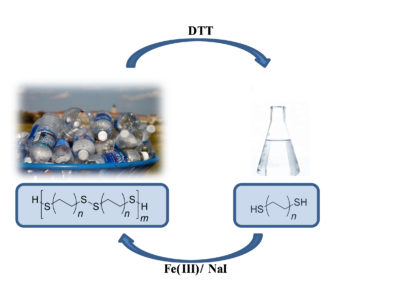Matthew Minus

Assistant Professor
Education
- BS, Chemistry, Texas Southern University, 2009
- MS, Chemistry, Rice University, 2013
- PhD, Chemistry, Rice University, 2017
- IRACDA Post-Doctoral Fellow, UT Austin, 2019
Research Interests
Closed loop recycling
Plastics have revolutionized every facet of modern society. Unfortunately, the current use of plastic materials is not sustainable. Due to slow biodegradation and unsustainable plastic dumping practices, plastics are now heavily deposited on the surface of the Arctic, Mediterranean, Atlantic, Caribbean, and Pacific oceans where they increase the rate of disease and infection in oceanic breeding grounds. Recycling of traditional plastic polymers is not an easy task. Most polymers are purposefully constructed for long term stability. Polymers that are comprised of polyethylenes, polypropylenes, and polystyrenes are inert to most atmospheric conditions. This lab aims to create polymers with reversible covalent linkers that can be selectively decomposed and recycled into monomers as shown in the figure. The resulting monomers can then be reused to form new recyclable polymers.
Selected Research Publications
- Minus MB, Moor SR, Pary FF, Nirmani LPT, Chwatko M, Okeke B, Singleton JE, Nelson TL, Lynd NA, Anslyn EV. “Benchtop” Biaryl Coupling Using Pd/Cu Cocatalysis: Application to the Synthesis of Conjugated Polymers. Org Lett. 2021 Apr 16;23(8):2873-2877. PubMed PMID: 33784461.
- Minus M, Featherston A, Choi S, King S, Miller S, Anslyn E. Reengineering a Reversible Covalent-Bonding Assembly to Optically Detect ee in β-Chiral Primary Alcohols. Chem. 2019 December 12; 5(12):3196-3206.
Proposed recycling scheme. Selective disassembly of plastic and collection of monomers will be followed by the reassembly of recovered monomers into a polymer.

